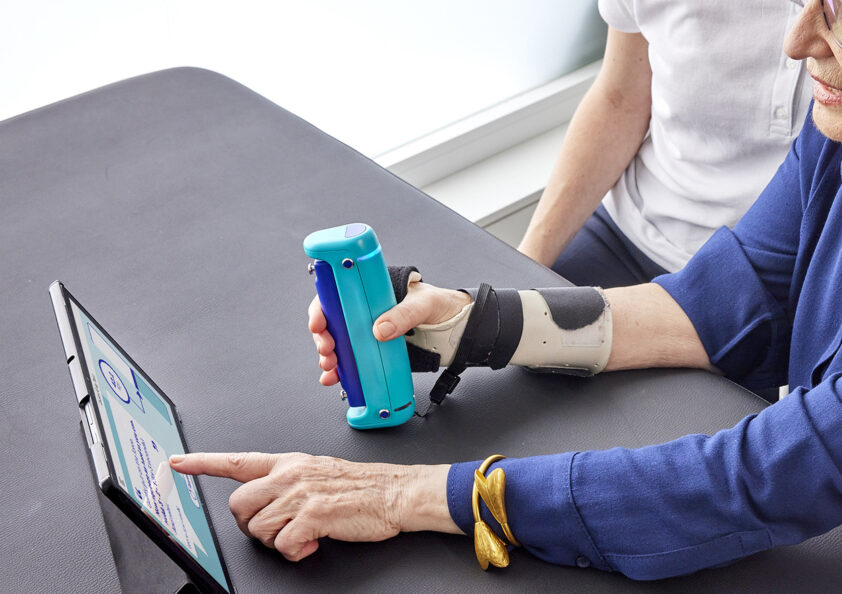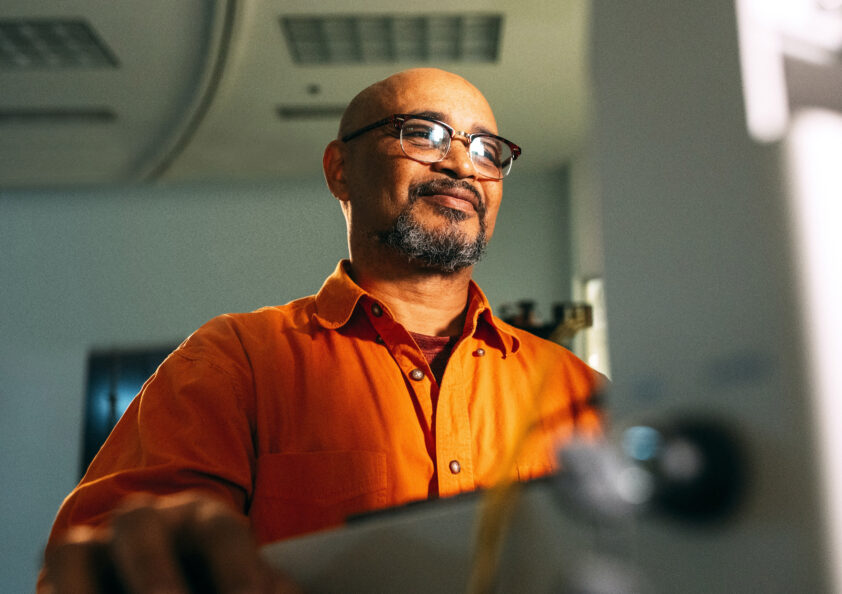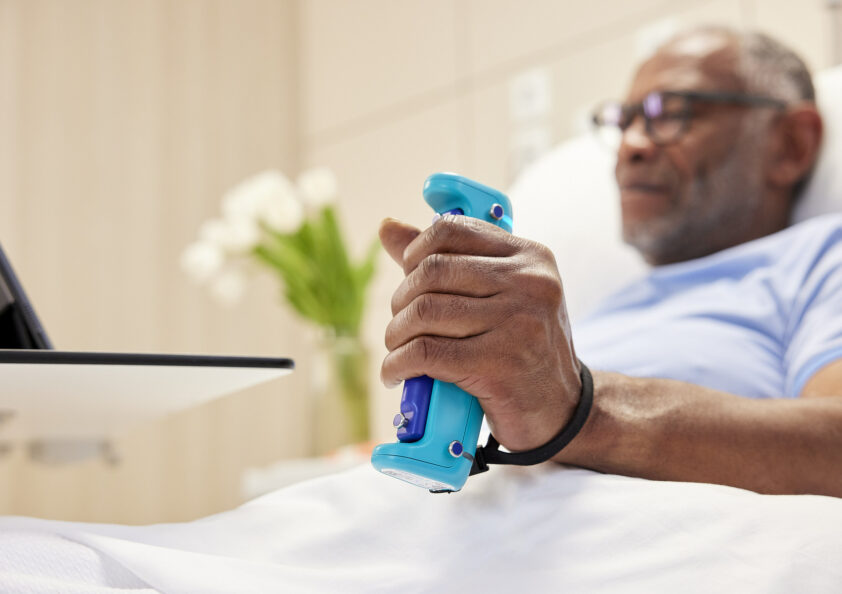
Stroke survivor peer support over zoom
Thinking back to when you had your stroke, what advice do you wish you could have given to your friends and family?
Join GripAble ambassador Kate Allatt and fellow stroke survivors for a supportive and insightful discussion over zoom.
5pm on Tuesday 25 January 2022
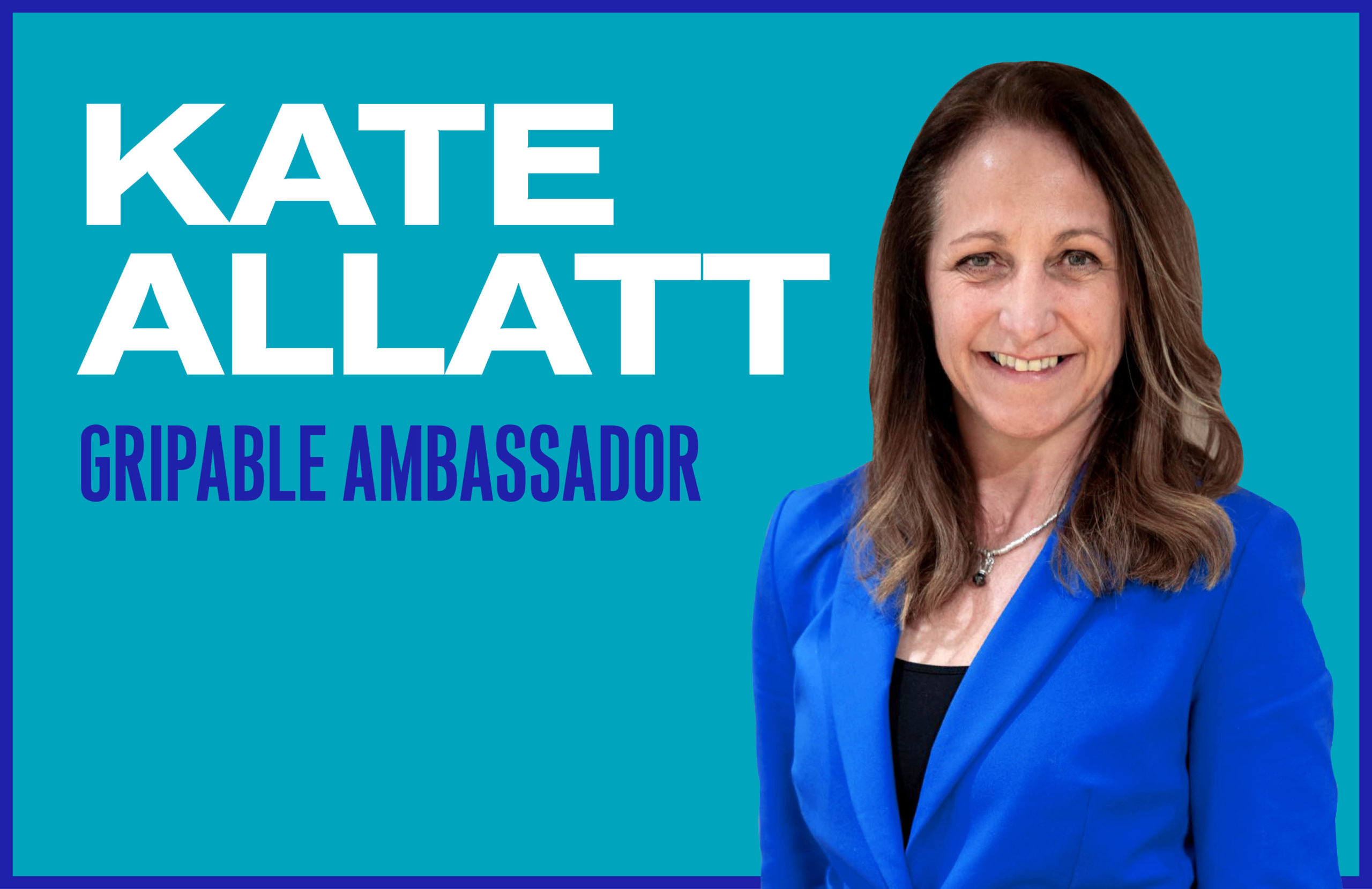
After a successful Zoom session in October, we are delighted that stroke survivor and GripAble ambassador Kate Allatt will be returning with another session in January 2022.
Kate will lead a discussion based around what we know now, as stroke survivors, and what we wish we could have told our family and friends in those few first days, weeks and months after our stroke. As well as being a chance to listen to and support each other, we also hope that the discussion will generate useful advice and information for stroke survivors in the future.
We do hope you can join.
Peer support – how to book your place
I am pleased to be hosting a further Zoom session for adult stroke and brain injury survivors where we can talk openly about our experience and challenges and have the opportunity to connect and support one another.
Date: Tuesday 25 January 2022
Time: 5pm to 6pm (GMT)
To find out more or to book your place, please click here to email Kate Allatt
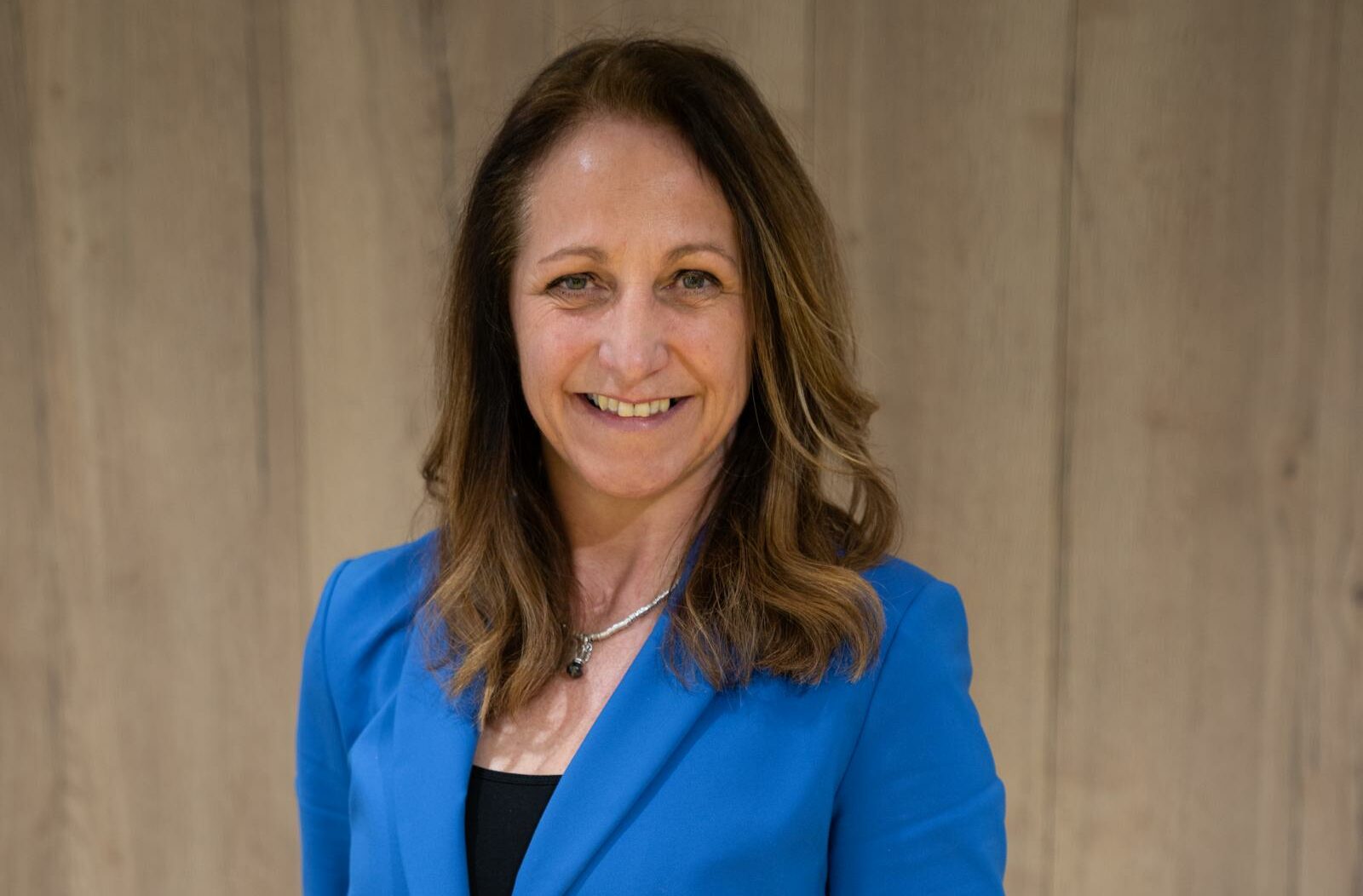
Advice for goal setting
It can be difficult to know where to start with goalsetting when there is so much you want to be able do again post-stroke or brain injury. But identifying what matters the most to you and brings you joy must be the first step.
Some examples of goals could include:
- Sitting in a wheelchair unaided
- Feeding yourself
- Tying up your own hair
- Applying make-up
- Tying your own shoelaces
- Using your phone or laptop
- Drinking a pint in the pub
- Preparing food
- Driving your car
Breaking down your goals into smaller, manageable chucks can help make those things you want to achieve feel more attainable, and less overwhelming. These short-term goals are what your therapists, allied health professionals and loves ones can support you with.
Maintaining motivation to achieve your goals can be a challenge, but connecting with fellow stroke survivors who are on the same journey can make a real difference.
The relationships I formed with stroke survivors that were or had at one point been ‘like me’ were crucial to my recovery – we shared our achievements with each other, however small they seemed, and encouraged each other to become to very best versions of ourselves by never losing sight of our goals.
It is also important to protect and prioritise your mental and physical health throughout the process by practicing self-care through wellbeing-focused interventions. Improved mental and physical health helps to build confidence, self-esteem, and resilience, which will in turn assist with the motivation and engagement you need to help you reach your goals.
By surrounding myself with a strong network of social support and keeping as active as possible, I am pleased to say that I did something many never thought possible and managed to run just one year after my stroke.
